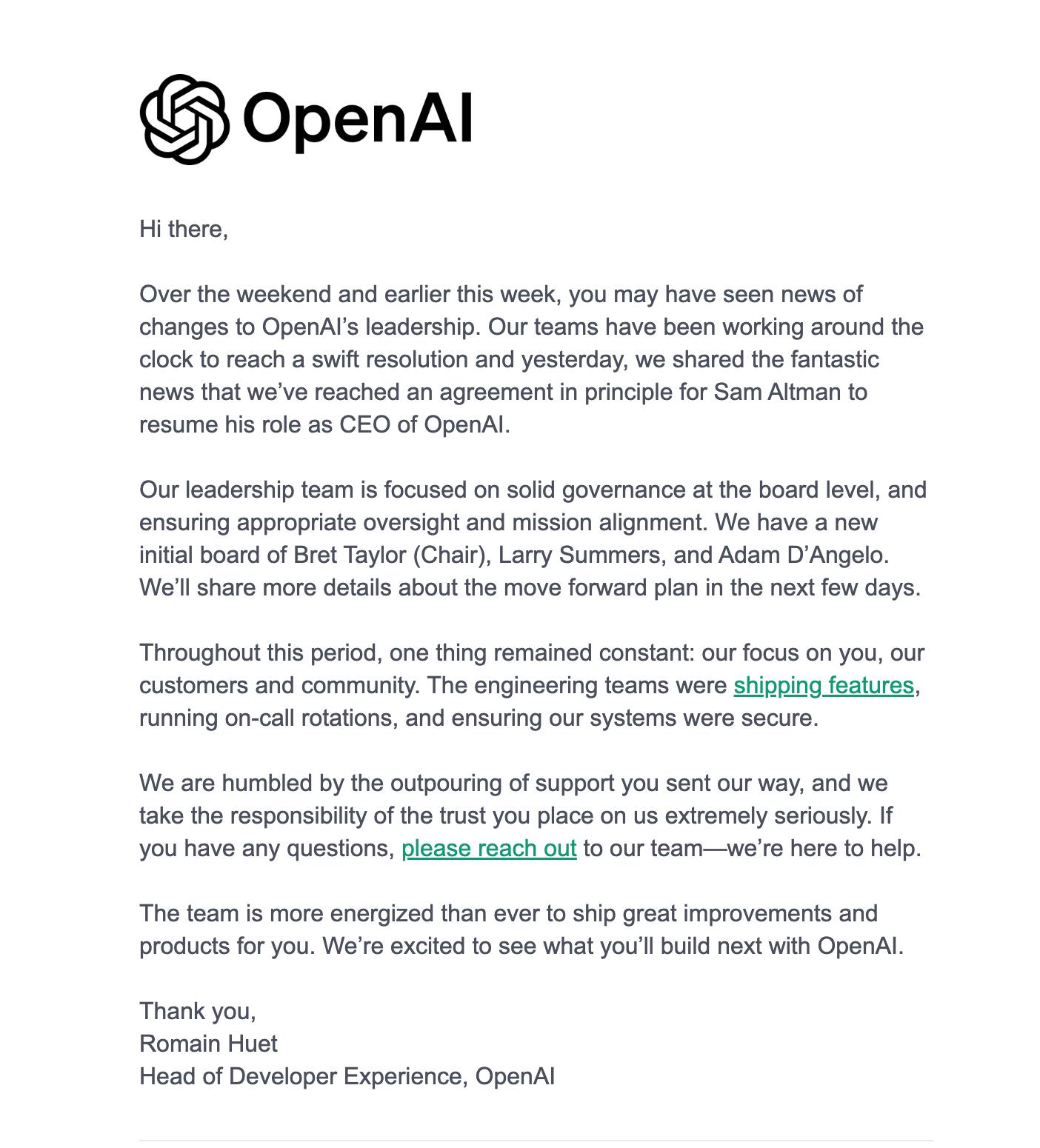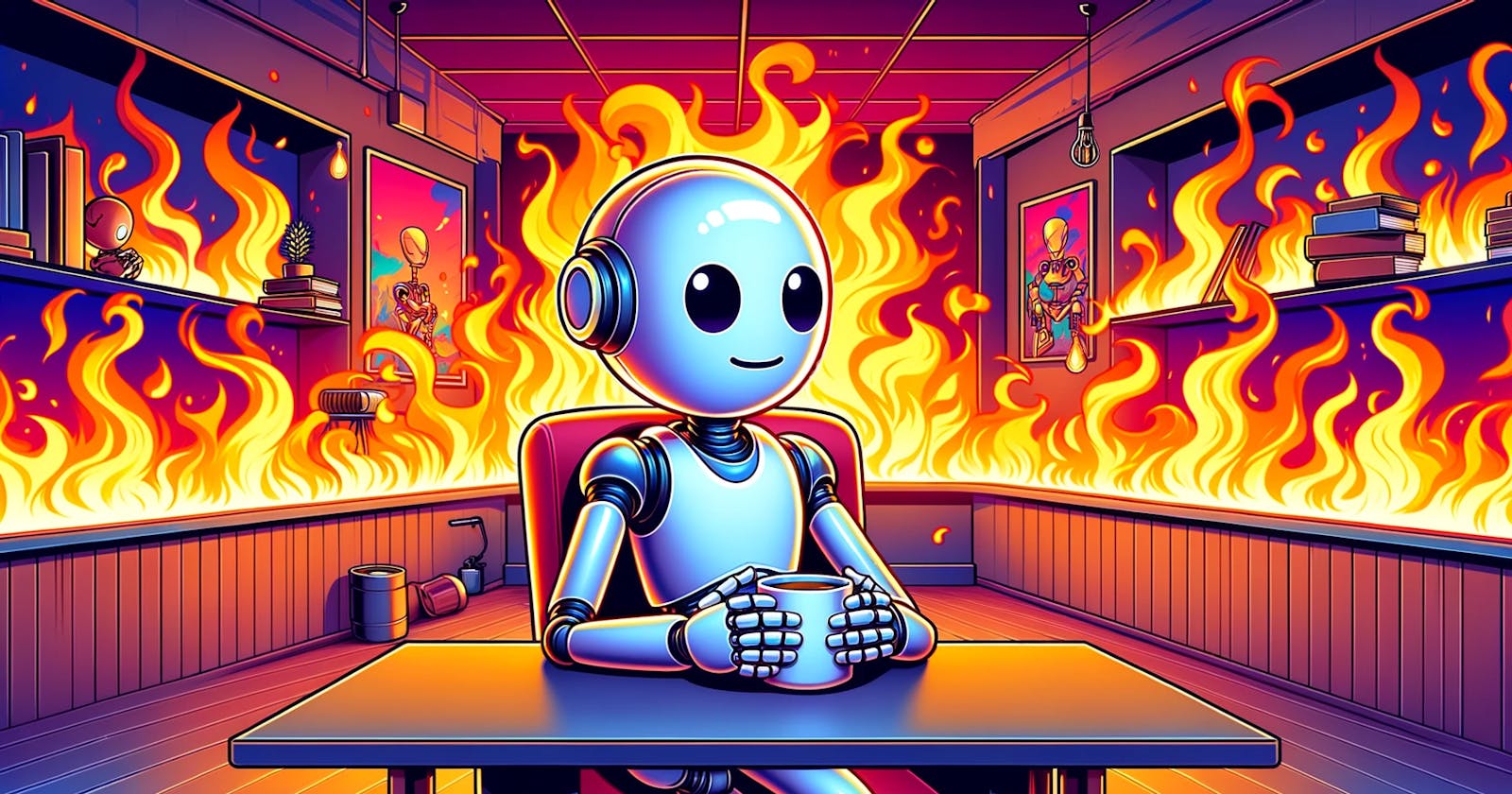Last week, OpenAI, the leader in artificial intelligence was engulfed in a whirlwind of events that shook the very foundation of the company and ignited debates about the future of AI. The chaos started with the sudden ouster of CEO Sam Altman, a move that surprised many and stirred up speculation about the reasons behind it. This turn of events was more than just a leadership change; it exposed underlying tensions within the AI industry.
At the heart of the upheaval were rumors of an internal advancement towards Artificial General Intelligence (AGI), a significant leap in AI development. If these rumors hold true, they could explain the intensity of the reactions within OpenAI. This development, while groundbreaking, brings with it a massive responsibility to balance innovation with ethical considerations.
What made the situation even more intriguing was the Tweet from Microsoft CEO Satya Nadella that Sam Altman had joined Microsoft. This announcement came amid the chaos at OpenAI, fitting into a complex timeline of events

Altman's association with Microsoft, which owns 49% of OpenAI (paid for with Azure credits which are needed to fund the computing power needed to run the company's GPTs) added another layer to the unfolding drama.
It is crucial to highlight that despite OpenAI being primarily established as a not-for-profit organisation, it parents a subsidiary company that operates with a profit-oriented motive. Microsoft holds its significant stake in the for-profit subsidiary.
This financial and operational connection between Microsoft and OpenAI could potentially shed light on some of the internal conflicts that have arisen within the organisation. In particular, it may help to elucidate the disagreements and tensions surrounding the strategic direction of AI development and the approach to its commercialisation.
Despite last weeks appearance of disorder, the events at OpenAI revealed a deep-seated passion among its people. The employees' strong reaction to Altman's removal, including their threat to leave OpenAI for Microsoft (and the 98% signed letter to its board), underscores their commitment not just to AI advancement but also to its safe and responsible development. This united front in support of Altman indicates a workforce that values ethical considerations alongside technological breakthroughs.
However, this commitment to safe AI development seems to be at odds with the commercial aspirations of OpenAI's for-profit subsidiary. The week's events may be a reflection of these tensions, highlighting the challenges of balancing profit motives with the ethical imperatives of AI development.
The tumultuous week at OpenAI is emblematic of the broader challenges facing the AI industry. As we edge closer to the development of AGI, it becomes increasingly crucial to ensure that the fervor for innovation is harmonised with the need for safety and ethical responsibility. The events at OpenAI, while seemingly chaotic, are a manifestation of the industry's intense desire to navigate AI towards a future that is not only technologically advanced but also morally sound and safe for humanity.
In the culmination of these events, Sam ultimately regained his position as the Chief Executive Officer, demonstrating the organisation's faith in his leadership and vision. Alongside this development, a newly constituted board of directors has been appointed, carefully selected to ensure a diverse range of perspectives and expertise. This strategic move aims to strike a balance between the relentless pursuit of innovation and the imperative to uphold safety and ethical responsibility. By doing so, OpenAI is taking a proactive approach to steer the development of artificial intelligence towards a future that is not only characterised by cutting-edge technological advancements but also firmly grounded in moral principles and the well-being of humanity as a whole.


